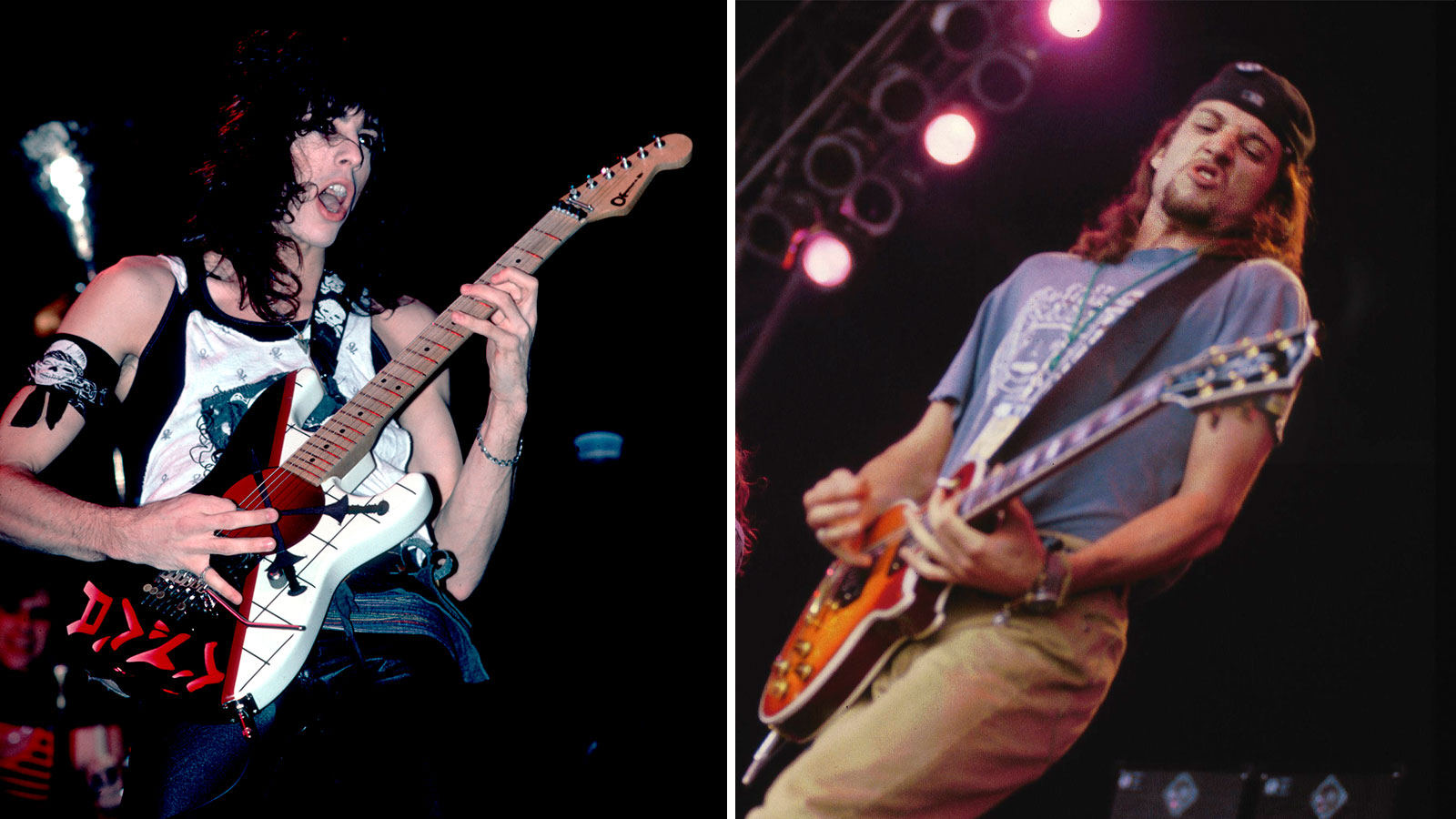Stone Gossard says grunge didn’t kill ‘80s hard rock bands – but “yes, some did die”
The Pearl Jam guitarist argues it was the natural “life cycle” of pop culture, not grunge, that caused the mass extinction event

Stone Gossard, one half of Pearl Jam’s dynamic guitar duo (completed by Mike McCready), has added his two cents on the grunge vs hard rock debate, arguing that grunge was not to blame for the demise of its hard rocking predecessors.
Speaking to VWMusic, Gossard instead makes a case for the transition as part of a broader “life cycle”.
“There’s always renewal in the world,” Goassard tells Andrew Daly. “And with that renewal comes new perspectives. And I think that hard rock was really stagnating at that point in a way that gave an opportunity to what I’ll call ‘less musically talented’ musicians to say, ‘Hey, there’s another way to play rock songs… to have songs that are heavy… outside the normal color palette of a heavy metal song.”
In the piece, Gossard discusses his early love of bands like Iron Maiden and the NWOBHM movement, alongside Motörhead, Led Zeppelin and Merciful Fate – groups that are not usually held up as influences by the archetypal grunge player. Instead, the guitarist explains, his contrasting playing style came about more by accident than design.
I love hard rock, and I always have, but renewal and rebirth are a part of art.
Stone Gossard
“I was into it,” he says. “[But] I didn’t really know how to play like that, so I was just doing what sounded right to me. And I think that in the late ’80s, there was a very free attitude about art and music that was brewing in the wake of hard rock, and a lot of people were experimenting with sounds, and the bands formed from there. There was something about it that was fresh, that really captured people’s ears, and that had a huge effect on it all too.”
Gossard’s case for rock’s evolution in the early-’90s is more nuanced than the narrative we’re used to hearing. History is painted by the victors, and usually in broad brush strokes, but the classic tales of rock’s various slash ‘n’ burn moments are highly simplified.
Contrary to popular opinion, punk – grunge’s spiritual predecessor – was populated by many musicians who (mostly privately) respected the experimental tendencies of the prog musicians they were positioned to ‘destroy’.
Get The Pick Newsletter
All the latest guitar news, interviews, lessons, reviews, deals and more, direct to your inbox!
Similarly, Gossard’s take is that grunge’s mission statement was not as simple as erasing the hard rock scene. That is something that fans and listening habits took care of, and not completely…
“You know, a lot of those heavy metal bands you’re talking about are still around,” says Gossard. “So clearly they all didn’t die. Sure, a lot of them had to regroup, and yes, some did die, but that’s part of the life cycle, right? There are still a lot of fans out there who love hard rock, and I’m one of them. I love hard rock, and I always have, but renewal and rebirth are a part of art.”
Fortunately, Pearl Jam have often taken care of their own renewal and rebirth – one of the reasons they're still with us – case in point, their recent move to digital amps.

Matt is Deputy Editor for GuitarWorld.com. Before that he spent 10 years as a freelance music journalist, interviewing artists for the likes of Total Guitar, Guitarist, Guitar World, MusicRadar, NME.com, DJ Mag and Electronic Sound. In 2020, he launched CreativeMoney.co.uk, which aims to share the ideas that make creative lifestyles more sustainable. He plays guitar, but should not be allowed near your delay pedals.
“The main acoustic is a $100 Fender – the strings were super-old and dusty. We hate new strings!” Meet Great Grandpa, the unpredictable indie rockers making epic anthems with cheap acoustics – and recording guitars like a Queens of the Stone Age drummer
“You can almost hear the music in your head when looking at these photos”: How legendary photographer Jim Marshall captured the essence of the Grateful Dead and documented the rise of the ultimate jam band










